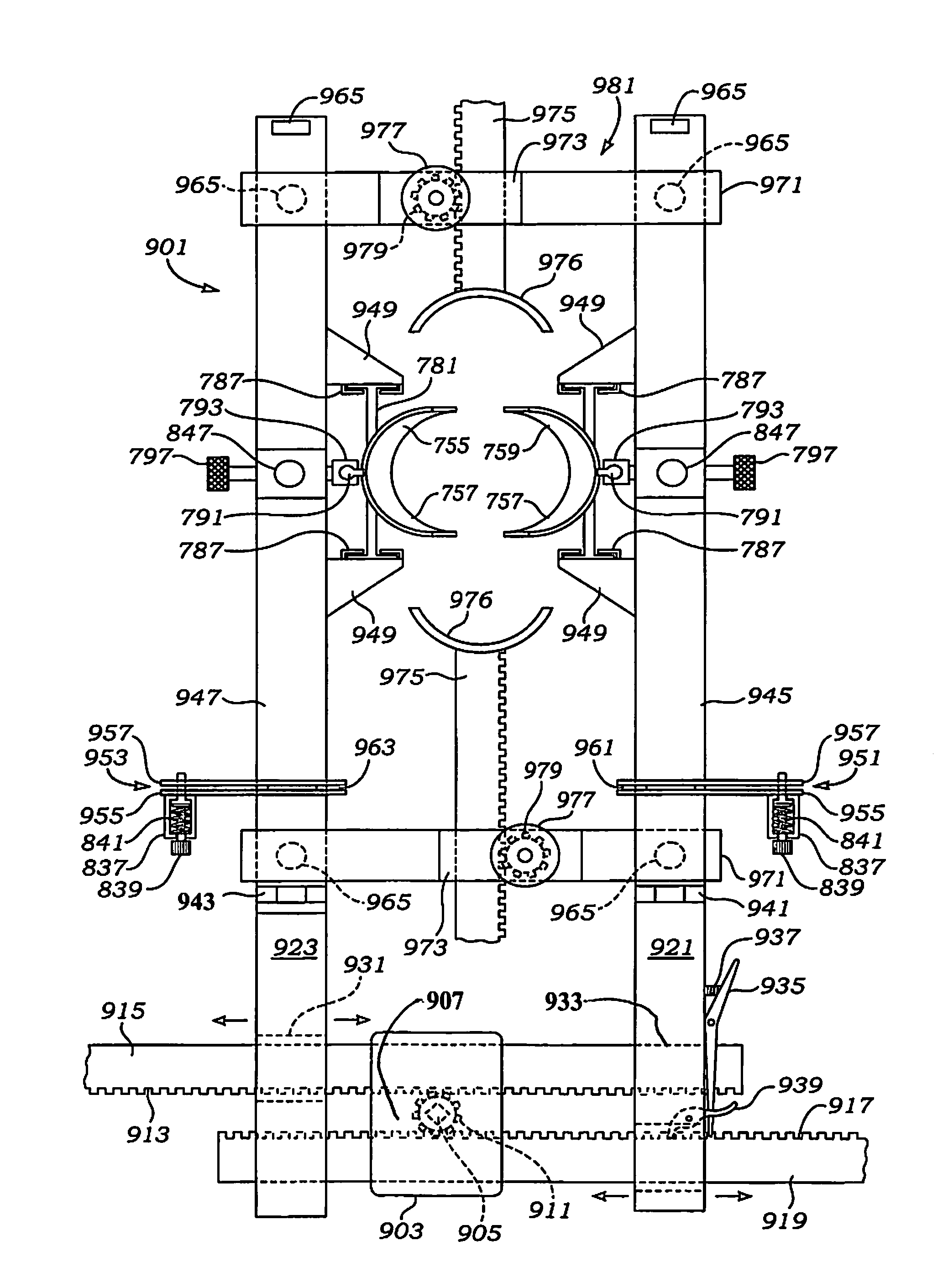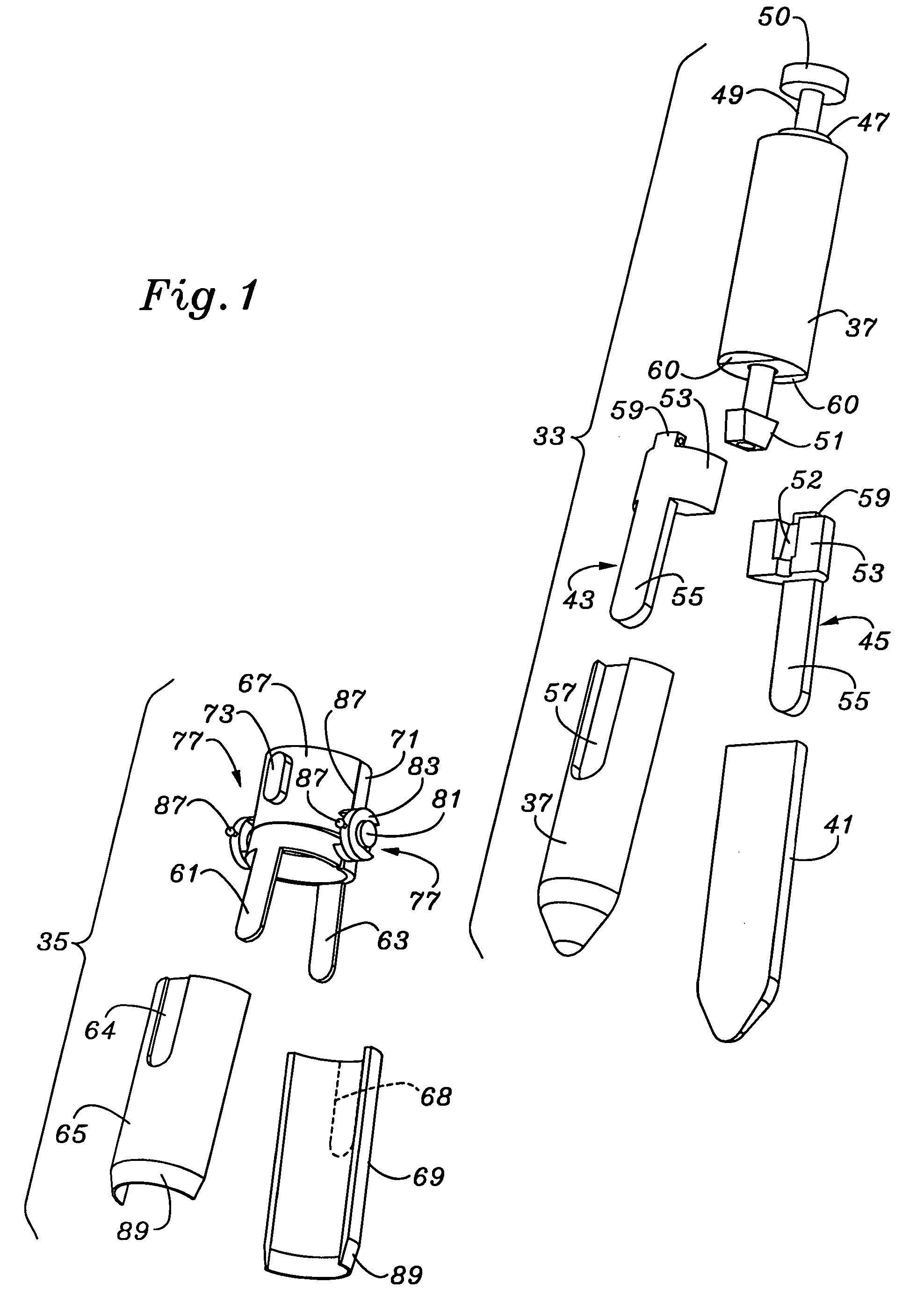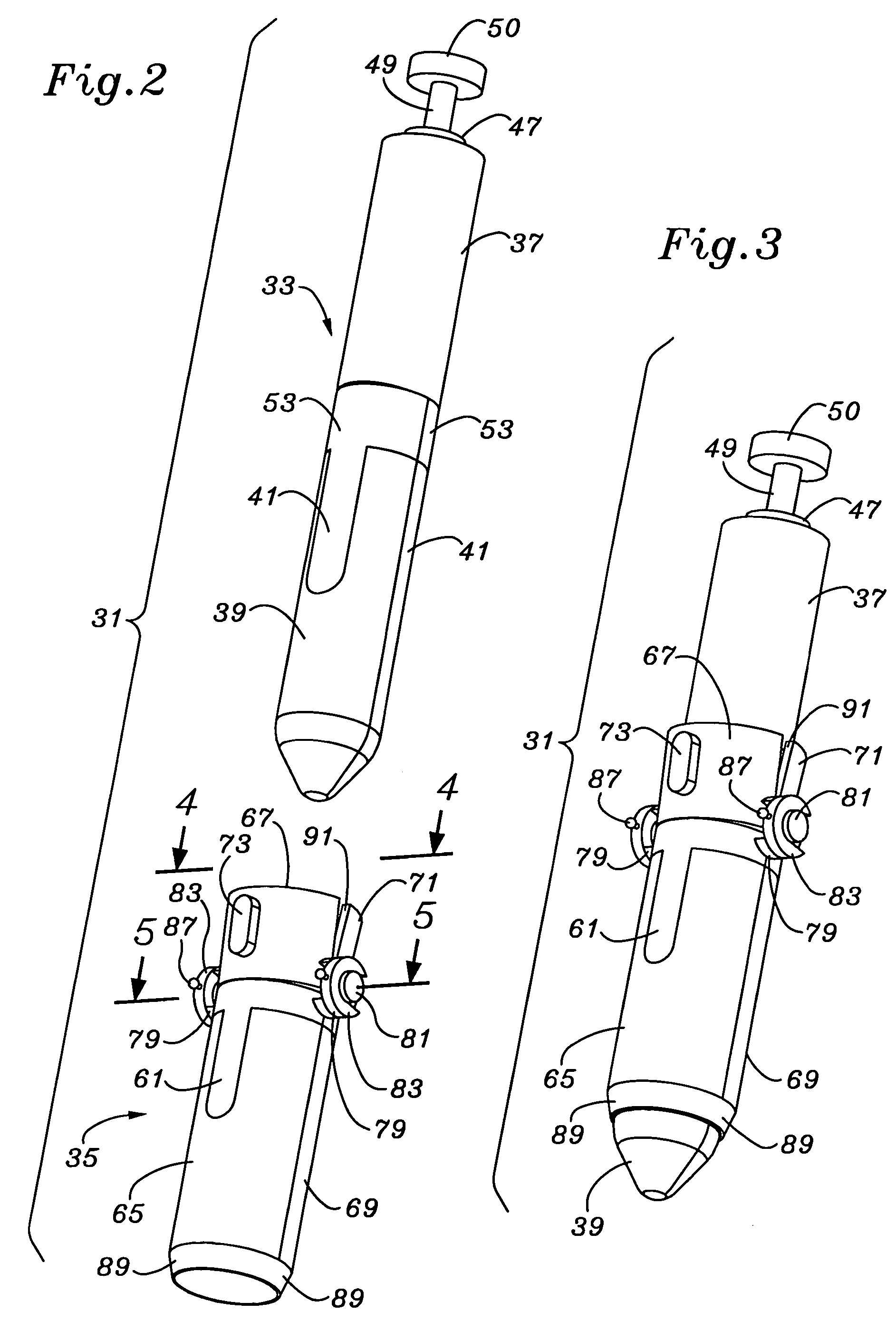Minimal access lumbar diskectomy instrumentation and method
a technology for lumbar diskectomy and instrumentation, which is applied in the field of minimal access lumbar posterior surgery, can solve the problems of large incisions, difficult maintenance, and large stretching of structures, and achieve the effects of less incisions, less central docking, and excellent exposur
- Summary
- Abstract
- Description
- Claims
- Application Information
AI Technical Summary
Benefits of technology
Problems solved by technology
Method used
Image
Examples
Embodiment Construction
[0081]The description and operation of the minimal incision maximal access system will be best described with reference to FIG. 1 and identifying a general system 31. System 31 includes an obturator 33 and a working tube 35. The orientation of the obturator 33 is in a slightly displaced from a position of alignment with the working tube 35 for entry into working tube 35 and to provide the initial carefully controlled force for spreading the working tube 35, as will be shown.
[0082]Obturator includes an upper control housing 37 and a pair of spreading legs 39 and 41. The spreading legs 39 and 41 are seen as coming together to form a conical tip and thus have hemi-conical end portions. The spreading legs 39 and 41 over fit the attachment leg portions 43 and 45, respectively. At the top of the upper control housing 37 a boss 47 surrounds and supports the extension of a control shaft 49. a knurled thumb knob 50 sits atop the control shaft 49 to facilitate controlled turning of the contro...
PUM
 Login to View More
Login to View More Abstract
Description
Claims
Application Information
 Login to View More
Login to View More - R&D
- Intellectual Property
- Life Sciences
- Materials
- Tech Scout
- Unparalleled Data Quality
- Higher Quality Content
- 60% Fewer Hallucinations
Browse by: Latest US Patents, China's latest patents, Technical Efficacy Thesaurus, Application Domain, Technology Topic, Popular Technical Reports.
© 2025 PatSnap. All rights reserved.Legal|Privacy policy|Modern Slavery Act Transparency Statement|Sitemap|About US| Contact US: help@patsnap.com



